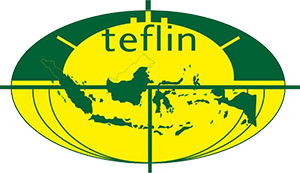Implementation of Problem-Based Learning Model in Improving Speaking Skills for Part-Time Students at A Higher Education Institution in Semarang
Abstract
The ability to communicate verbally is considered to be one of the important factors for basic language skills. This competency plays a significant role in oral communication. The purpose of this study was to determine whether or not the use of a model called Problem-Based Learning (PBL) might help students enhance their speaking ability. PBL is one of the learning models that can be used in language classes because the focus of the learning model is involving students in the learning process. The PBL model encourages meaningful interactions for the working students who study in part-time class as the special program. Since the students must be trained to practice speaking English. Therefore, speaking competence can be achieved through the activities. Observation and a questionnaire were the two techniques that were used to collect the data. The results showed that the PBL model used by the lecturer in the teaching and learning process that focuses on the discussion to get the alternative solution deeply can make students understand every detail in practicing speaking with real-life issues that require real-life solutions. Thus, this study implied that PBL as a learning model for English subjects was appropriate to make students fluent to communicate in English
Full Text:
PDFReferences
Astra, I. M., Nasbey, H., & Nugraha, A. (2015). Development of an android application in the form of a simulation lab as learning media for senior high school students. Eurasia Journal of Mathematics, Science & Technology Education, 11(5). 1081-1088. https://doi.org/10.12973/eurasia.2015.1376a
Azadi, S., Ali Akbari M., & A. A. (2015). The role of classroom interaction on improvement of speaking among Iranian EFL Learners. International Journal of Language Learning and Applied Linguistics World, 8(1), 126–135. http://www.sapub.org/global/showpaperpdf.aspx?doi=10.5923/j.jalll.20170301.04
Gagné, R. M. (1977). The conditions of learning. Holt, Rinehart and Winston.
Harmer, J. (2001). The practice of English language teaching. Longman.
Chavez, C., Manzano, J., & Creswell, J. W. (n.d.). Choosing Among Five Approaches Choosing Among Five Approaches.
Hossain, M. I. (2015). Teaching productive skills to the students: a secondary level scenario. BRAC University.
Karyuatry., L., & Irawati, E. (2014). Using problem based learning strategy to enhance speaking skill of seventh grade students of SMPN 21 Malang [Universitas Negeri Malang]. http://karya-ilmiah.um.ac.id/index.php/sastra-inggris/article/view/36408
Khusain, A. A. Al. (2016). Using problem-based learning to improve the speaking teaching and learning process of grade XI students of MA Ali Maksum Yogyakarta [Universitas Negeri Yogyakarta]. http://eprints.uny.ac.id/id/eprint/38054
Levin B. (2001). Energizing Teacher Education And Professional Development with Problem-Based Learning. Library of Congress cataloging-in Publication data.
Liu, J. (2010). Language learning strategies and its training model. International Education Studies, 3(3), 100–104. https://doi.org/10.5539/ies.v3n3p100
Mansfield, G., & Poppi, F. (2012). The English as a Foreign Language / Lingua Franca Debate: Sensitising Teachers of English as a Foreign Language Towards Teaching English as a Lingua Franca. Profile Issues in Teachers` Professional Development, 14(1), 159–172. https://files.eric.ed.gov/fulltext/EJ1051655.pdf
Moleong, L. (2014). Metode Penelitian Kualitatif Edisi Revisi. Remaja Rosda Karya.
Nastas, n. (2017). The importance of studying foreign languages texts for athletes specialized in fitness. Moldavian Journal for Education and Social Psychology, 1(1), 34–39. https://doi.org/10.18662/mjesp/2017.0101.04
Rachmawati, Y. (2013). Language learning strategies used by learners in learning speaking (A descriptive study in an exemplary class in one of senior high schools in Cimahi). Journal of English and Education, 1(2), 124–131.
Smokotin, V. M., Alekseyenko, A. S., & Petrova, G. I. (2014). The Phenomenon of Linguistic Globalization: English as the Global Lingua Franca (EGLF). Procedia - Social and Behavioral Sciences, 154(October), 509–513. https://doi.org/10.1016/j.sbspro.2014.10.177
Sugiono. (2012). Metode Penelitian Kualitatif Sugiyono. Mode Penelitian Kualitatif, 5(January), 1–5. http://belajarpsikologi.com/metode-penelitian-kualitatif/
Verdecchia, A., Capocaccia, R., & Hakulinen, T. (1995). Methods of data analysis. IARC Scientific Publications, 132, 32–37. https://doi.org/10.1201/9781482280043-4
Zyoud, M. (2016). Theoretical perspective on how to develop speaking skill among university students. Pune Research Scholar an International Multidisciplinary Journal, 2(1), 1-10.
DOI: http://dx.doi.org/10.21043/jetli.v5i2.17087
Refbacks
- There are currently no refbacks.
Copyright (c) 2022 Waode Hamsia







